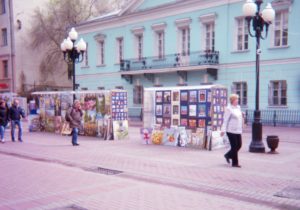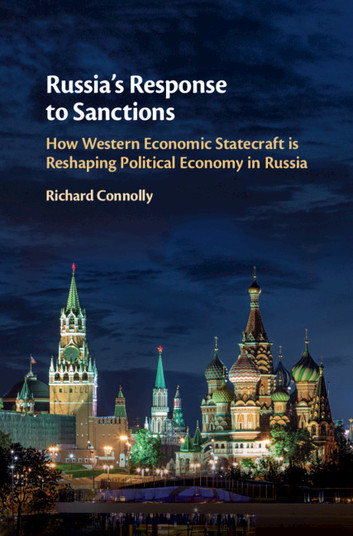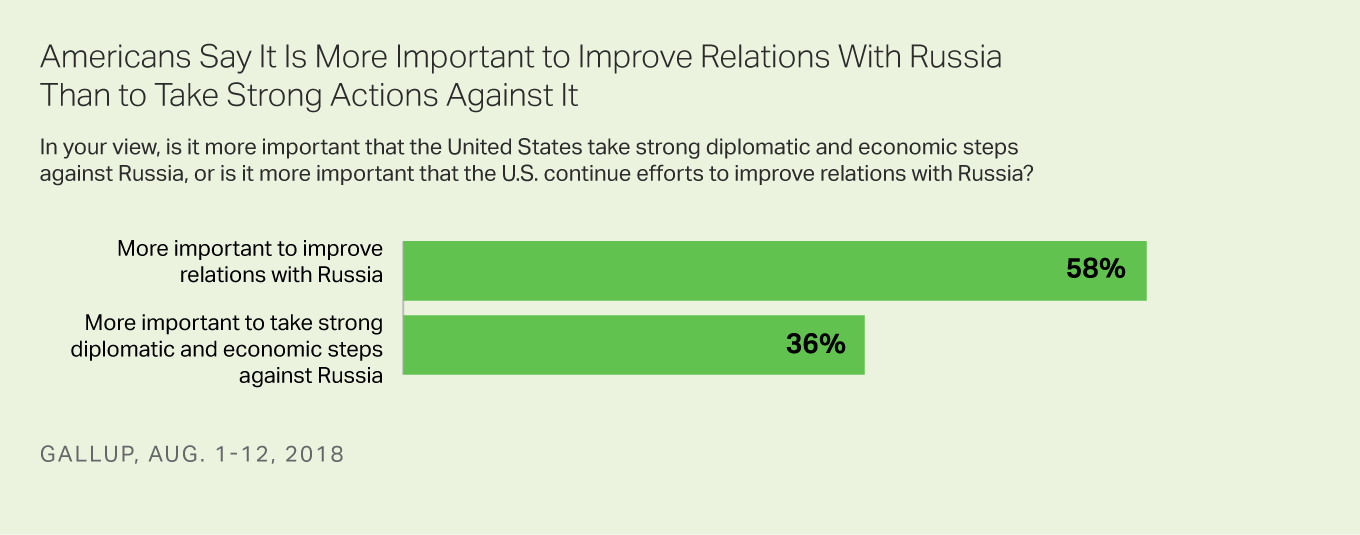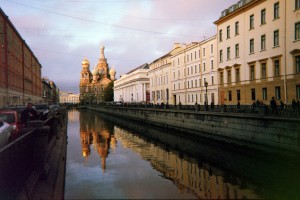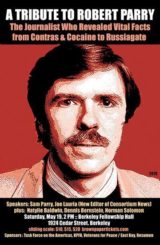
Russian President Vladimir Putin and German Chancellor Angela Merkel take to the stage during a meeting at the German government guesthouse in Meseberg. Photo: AFP/Sergey Guneev/Sputnik
As confirmed to Asia Times by diplomatic sources, a top summit featuring Germany, Russia, France and Turkey is on the way. Call it an expanded Eurovision – with Turkey included due to (wobbling) NATO membership.
Ostensibly, the summit would be on Syria – according to the Kremlin. That does not cut it – as Syria is already being discussed in detail in Astana by Russia, Iran and Turkey.
….The fact is multinational sherpas are already working on it. In parallel, the finance ministers of Turkey and France not only agreed to confront sanctions on Turkey, but to come up with further bilateral economic cooperation. Sun King Macron is dying for his star turn at The Tariffed to go platinum.
….The Nord Stream 2 angle proved that Putin and Merkel broadly agree on Baltic geoeconomics. They also agree on preserving the JCPOA, also known as the Iran nuclear deal. And yet Merkel adds a conditionality that comes straight from the Beltway: Germany is “following Iran’s activities with concern, be it the missile program or the situation in Syria.” You can take the girl out of exceptional tariffs, but you can’t take exceptionalism out of the girl.
….And then there’s Sanctioned superstar Erdogan and his unpredictable outbursts: The hammer of the gods / We’ll drive our ships to new lands / To fight the horde, and sing and cry / Valhalla, I am coming!
What’s certain for now is that an IMF bailout of Turkey simply won’t happen; Erdogan can’t possibly sell it to his local audience. Options on the horizon come down to Qatar – $15 billion in investments already committed – and China ready to deepen Turkey’s connectivity to the New Silk Roads/Belt and Road Initiative (BRI).
During the Obama administration, Cold War 2.0 was launched on Russia by transposing the old Iron Curtain across the intermarium, from the Baltic to the Black Sea. A post-Maidan anti-Russian Ukraine – which borders the Black Sea – is a central part of the strategy.
Yet now Turkey provides Moscow with the perfect opening to smash the geopolitical chessboard and destroy the concerted offensive – which includes key elements from relentless NATO expansion to sanctions as no holds barred economic war.
Read the full article here
Meanwhile, Forbes columnist Steve Hanke wrote a piece suggesting the benefits of a gold bloc for U.S.-sanctioned countries Iran, Turkey and Russia. Hanke explained how the institution of a currency board backed by gold would work:
In 1997, Bob Mundell predicted that “Gold will be part of the structure of the international monetary system in the twenty-first century.” As has often been the case, Mundell’s prediction might just be prescient. Indeed, Iran, Russia, and Turkey could, and just might, make Mundell’s prediction a reality. One foolproof way to do that is via gold-based currency boards. Currency boards have existed in more than 70 countries, and a number are in operation today. Countries with such monetary institutions have experienced more fiscal discipline, superior price stability, and higher growth rates than comparable countries with central banks.
A currency board is a monetary institution that only issues notes and coins. These monetary liabilities are freely convertible into a reserve currency (also called the anchor currency) at a fixed rate on demand. The reserve currency is a convertible foreign currency or a commodity chosen for its expected stability. For reserves, such a currency board holds low-risk, interest-earning securities and other assets payable in the reserve currency.
By law, a currency board is required to maintain a fixed exchange rate with the reserve currency and hold foreign reserves equal to 100% of the monetary base. This prevents the currency board from increasing or decreasing the monetary base at its own discretion. A currency board system is passive and is characterized by automaticity.
Currency boards have existed in some 70 countries. The first was installed in the British Indian Ocean colony of Mauritius in 1849. No currency board has failed. Yes, no failures. Argentina’s Convertibility system (1991-2001) was not a currency board.
Hanke goes on to provide a successful example of such a currency board – during Russia’s civil war between 1918 and 1920:
Currency boards’ perfect record includes the National Emission Caisse, established in northern Russia in 1918 during Russia’s civil war. The Caisse issued “British ruble” notes, backed by pounds sterling and convertible into pounds at a fixed rate. The father of the British ruble was none other than John Maynard Keynes, a British Treasury official at the time.
Despite the civil war, the British ruble never deviated from its fixed exchange rate with the pound. In contrast to other Russian rubles, the British ruble was a reliable store of value. Naturally, the British ruble drove other rubles out of circulation. Unfortunately, its life was brief: The National Emission Caisse ceased operation in 1920 after allied troops withdrew from Russia.
Any readers who are more well-versed in economics than me can feel free to share their opinions in the comments section about this.
**************************************************************************
Dimitri Alexander Simes has written an interesting article for The National Interest on what young Russian adults’ opinions are of Putin, his governance of Russia, what they’d like to see changed and how likely they are to engage in significant protest. Simes draws on opinion polls by the independent (translation: western funded) Levada Center, Russian state polls, analyses by other Russia experts and his own interviews with young adult Russians. An excerpt of Simes’ findings:
Surveys of public opinion indicate that Putin enjoys strong support among Russia’s youth. In December 2017, the Levada Center, the country’s foremost independent polling agency, found that 86 percent of Russians between the ages of eighteen to twenty-four approved of the Russian president. Similarly, a poll conducted by the state funded Russian Public Opinion Research Center (VTsIOM) after the Presidential election in March 2018 showed that 67.9 percent of Russian voters aged eighteen to thirty-four cast their ballots for Putin. Like members of older generations, many young Russians credit the Kremlin leader for restoring the country’s geopolitical status after the fall of the Soviet Union. “Thanks to [Putin] Russia overcame the consequences from the collapse of the USSR and rose to a new level,” stated Ekaterina Nikitina, a journalism student.
However, these numbers should not be taken as a sign that Putin’s policies go unchallenged by the Russian youth. Most of the young Russians that I spoke with heavily criticized their country’s president. A major complaint is that Putin’s unwillingness to step aside prevented a transition of power. “A President should not turn into a Tsar, and the country under [Putin] is moving towards the time when there was a Tsar,” said Mikhail Sein, a video-blogger and journalist. Another area of concern among those interviewed is that the Russian president is evolving into an ever more reactionary figure. Anastasia Labunets, a social activist for the Communist Party, bemoaned that Putin “began as a moderate liberal reformer and gave big hopes, but became a typical authoritarian leader in the end.” Finally, the Kremlin’s recent moves in the social sphere inspired chagrin. Referring to Putin’s broken promise to not raise the pension age, Sofia Malakhova, a book illustrator, asked “How can one feel about a person who directly stated that under his rule the pension age would not be raised?”
It also the case that Putin’s personal popularity does not translate to satisfaction with the Russian political system as a whole. Early last year, the Higher School of Economics, one of Russia’s leading universities, conducted a survey of over six thousand students from 109 different universities. The researchers found that young Russians have a low level of trust for most government officials. A list of the top eleven professions that Russian students most distrust includes Members of the Duma (66 percent), members of regional parliaments (65 percent), mayors (62 percent), and governors (61 percent).
The same study pointed to a widespread feeling amongst the Russian youth that there are serious problems in the country and that meaningful change is necessary. Of those surveyed, 69 percent are worried about the uncertainty of their Russia’s future and 75 percent supported political reforms in addition to economic ones. At the same time, 48 percent of the respondents opposed changes that would fundamentally alter the existing system. The rising generation of Russians, although dissatisfied with many facets of the status quo, lacks major revolutionary aspirations.
….While some of the young Russians that I talked to were very politically engaged, most confined their political activity to checking the news. A similar conclusion is reached by the study from the Higher School of Economics, which shows that 64 percent of Russian students would not be willing to take part in a demonstration and that 72 percent deem protests as an ineffective means to achieve political change.
When reading that last paragraph, I couldn’t help but think that I’ve pretty much lost faith in protests as an effective means of change here in the U.S. It seems to have turned into a feel-good spectacle that doesn’t translate into much concrete progress. Government officials seem to just go on their merry way and do what they want, regardless of opinion polls or protests suggesting they want something very different than what they’re getting. Perhaps Russian youth do want to see positive changes but are still trying to figure out how to make it happen without wasting time and energy on ineffective methods and not wanting to make the same “mistakes” that previous Russians made with revolutions that resulted in some progress but at the cost of much blood, horror and upheaval. Lots of thoughtful people everywhere are still trying to figure out this conundrum.
As for my own experience talking to young people in Russia, I was impressed by their engagement with the world and their concern about how to achieve peace, create a system of economic justice, and protecting the environment. However, I must acknowledge that the youth I heard from were from fairly well-off families who were sending their kids to private schools, and kids that lived in medium to large cities. I get the sense that the young adults that Simes spoke to were of the urban variety as well. It would be nice to hear what Russian youth from small towns, rural areas or poorer backgrounds think.
**************************************************************************
The National Security Archive (project of George Washington University) just released formerly classified government documents revealing that, during the height of the Cold War, Washington’s nuclear war plan included instructions to implement an attack that would render both the Soviet Union and China as no longer viable societies:
U.S. nuclear war plans during the Johnson administration included the option of a retaliatory strike against nuclear, conventional military, and urban-industrial targets with the purpose of removing the Soviet Union “from the category of a major industrial power” and destroying it as a “viable” society. This is one disclosure from a Joint Staff review of the Single Integrated Operational Plan (SIOP) obtained via a Mandatory Declassification Review request by the George Washington University-based National Security Archive and posted on our site today.
The document, the Joint Staff’s review of SIOP guidance in June 1964, showed continued acceptance by policymakers of the cataclysmic nuclear strike options that had been integral to the plan since its inception. Accordingly, the SIOP set high damage requirements—95 percent for the top priority nuclear targets—ensuring that it remained an “overkill” plan, referring to its massively destructive effects. Prepared and continually updated by the Joint Strategic Target Planning Staff, the SIOP has been characterized by some as a “doomsday machine.”[1]
U.S. nuclear war planning drew on Cold War assumptions about the danger of a Soviet surprise attack against the United States.[2] The possibility that deterrence could fail and that U.S.-Soviet conflict could break out made U.S. defense officials seek attack options “capable of execution under all reasonably foreseeable conditions under which hostilities may begin.”[3] For such purposes, the SIOP included a retaliatory option in the event of a Soviet surprise attack and a preemptive option in the case of intelligence warning of an imminent Soviet attack
The U.S. government has never declassified any version of the SIOP, forcing researchers to rely on ancillary documentation to shed useful light on elements of the plan. The Joint Staff review posted today [8/24/2018] is the latest such evidence.
For more details click here
